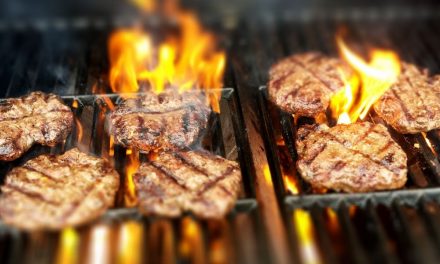If you feel you have reached a plateau with the ketogenic diet or you just want to try something new, a keto egg fast could be a good choice for you. This blog will look at the pros and cons of a keto egg fast as well as how to do it correctly, and some recipe ideas to get you started.
What is a Keto Egg Fast?
An egg fast is an extreme but brief version of a ketogenic diet that restricts you to eating only eggs, cheese, and butter for a few days, mainly 3-5 days. This idea was originated in 2010 by blogger Jimmy Moore.
This short-term diet plan is one of the most popular strategies to break through weight-loss plateaus and accelerate fat loss.
From a macronutrient perspective, the keto diet and egg fast are similar. Your daily intake remains the same i.e. 60% fat, 30% protein, and 10% or fewer carbs.
The difference between a keto egg fast and standard ketogenic diet is that you consume a combination of healthy foods like avocado, non-starchy vegetables, green salads, and cruciferous vegetables on a traditional keto diet.
You get your calories only from eggs, cheese, butter, and healthy oils on a keto egg fast. An egg fast is a more restrictive form of the keto diet that can accelerate your fat-burning capacity.
When you eat only eggs, butter, and cheese, you feel full quickly, without the carbs.
Benefits of an Egg Fast
As the diet is more restrictive and short-term, you may not get the full benefits compared to the conventional keto diet because you cannot prolong the diet for more than five days. But there are certain benefits that you may expect by following the diet.
1. Reduced appetite
Eggs are the cheapest protein-rich food and are known to be very filling. This is the main reason behind the reduced appetite. A high protein diet may help raise levels of hormones that promote fullness and lower levels of the hunger-promoting hormone at the same time.
2. Weight loss
As the egg fast diet is highly restrictive, it may promote ketosis, forcing your body to start burning fat molecules instead of glucose for energy. This, in turn, results in quick weight loss, particularly compared to other diet plans. Belly fat is usually the first place you notice weight loss.
3. Reduced insulin resistance
Insulin is a hormone that regulates blood sugar. Insulin resistance occurs when your body does not respond appropriately to insulin. Ketogenic diets show promising results in reducing insulin resistance which ultimately improves your body’s ability to manage blood sugar levels.
Risks and Side Effects of a Keto Egg Fast
1. Keto Flu
Keto flu is a common side effect for people who are new to the ketogenic diet. This happens because your body is adapting to this new lifestyle of gaining energy from fats instead of glucose.
Common symptoms include low energy, increased hunger, irritability, nausea, sleep issues, headache, and bad breath. These symptoms generally last for a few days. My article on the keto flu explains these in more detail and how to treat and alleviate these symptoms.
If you’ve not transitioned into ketosis before, or struggled with the keto flu, take a look at this article on keto electrolytes – what you need and why. Electrolytes make transitioning to keto so much easier.
2. Constipation
Constipation is another possible side effect of egg fasting. Your diet gets highly restrictive, which excludes high fiber vegetables or any keto friendly fruits. Some people also find that cheese contributes to constipation.
To overcome this issue, drink lots of water throughout the day.
3. Regain of Weight
Although an egg fast diet can promote quick weight loss, if you go back to eating the same way you did before the egg fast, you could gain back any weight lost.
Try to implement long-term weight loss strategies, like transitioning to a low-carb lifestyle long-term. Even if you do continue with a keto diet, it is not uncommon to gain a pound or two after an egg fast.
Who Should Not Do a Keto Egg Fast
An egg fast diet is unsuitable for individuals with certain health conditions like diabetes, high cholesterol, eating disorders, and those without a gallbladder, pregnant and breastfeeding women.
Consider consulting your healthcare provider before starting an egg fast diet.
Keto Egg Fast Rules
Every diet has rules to follow before starting, and many people modify these rules according to their choices and needs. Below are the basic egg fast guidelines:
The ‘Must Do’ Rules of an Egg Fast
- You must consume at least 6 whole eggs per day as this is the basis of this diet.
- You must consume up to 1oz (around a tablespoon) of healthy fat (butter, ghee, avocado oil, coconut oil or mct oil) with every egg you eat.
- You must eat your first keto egg fast meal within 30 minutes of waking up in the morning.
- You must eat an egg fast meal every 3-5 hours. If you are not hungry, don’t skip your next egg, eat it anyway. If you are hungry, eat more eggs. Try to aim for no more than 10.
- Do not eat anything for 3 hours before bedtime.
The Optional Rules of an Egg Fast
- You can also eat a tablespoon of full-fat cheese (any kind) along with every egg. This includes cream cheese.
- You should use the highest quality pasteurized eggs, cheese, and fats.
- You can use seasonings, spices, and keto-friendly condiments in small amounts for adding extra flavor to your meals.
- You can enjoy unsweetened drinks like black coffee or tea during the egg fast.
- Try to avoid diet soda but if you want it, then limit yourself to 1-2 cans per day, not more than that.
If You Don’t Think You’re Losing Much Weight on the Egg Fast
Each person is different, and we all lose weight at different rates. Some also have more weight to lose, therefore might find the weight comes off quicker. Don’t get discouraged by small weight loss numbers. On your next egg fast, try this:
- Drop back on the dairy, fats and mayo that you are adding to the eggs.
- Drink only black coffee, black tea or water.
Keto Egg Fast Recipes
Ready to get stuck into a keto egg fast? Here are some recipe ideas to get you started:
Hard Boiled Eggs
One of the simplest and quickest meal ideas for a keto egg fast is hard boil eggs. Once boiled, cut each egg in half and drizzle with one tablespoon of melted butter or ghee. Season with salt and pepper to taste and enjoy the delicious protein-rich food. Sprinkle with cheese for extra protein.
Deviled eggs are also super popular on the keto diet and quick and easy to make. Hard boil eggs and cut them into two halves. Mix the egg yolks with healthy mayo and the seasoning of your choice (curry powder is always a favorite) and add the mixture to egg whites. Voila! A treat for keto dieters.
Please keep in mind, the mayo will be your fat, so no need to add extra butter or ghee with deviled eggs.
Bulletproof Coffee With Eggs
This drink is the ultimate source of protein right after waking up in the morning. Just add an egg yolk (two or 3) with a tablespoon of butter or coconut oil along with hot water and coffee and blend. A creamy, hot, and delicious coffee is on your way, and don’t worry, the taste won’t feel eggy at all.
Egg Crepes
This is such a simple and delicious breakfast recipe that needs only two eggs that are whisked together with cream cheese and salt. Spread thin layers in a skillet, just like crepes. Top with melted butter.
Egg Drop Soup
Another quick recipe that can satisfy your soup cravings is egg drop soup. Boil 3 cups of bone broth along with butter, add spices or keto-friendly seasonings. Pour in two well-beaten eggs. Whisk continuously – the egg will cook and thicken the broth.
Keto Chaffles
Eggs and cheese mixed together and pressed in a waffle maker. Delicious! Top with butter or ghee.
More on the Basics of Fasting
Fasting is a common ritual that means you have to restrict your food consumption for a certain period. Fasting in general has been practiced for thousands of years for both religious and health reasons.
Science also confirms that fasting has tremendous effects on your overall health and metabolism. But in recent years, fasting has gained worldwide popularity because of its ability to lose weight quickly.
If we talk about quick weight loss, the first thing that comes to our mind is the ketogenic diet. A ketogenic diet is a kind of dietary habit that includes high consumption of fats, moderate proteins, and a very low consumption of carbohydrates.
By following this diet pattern, your body reaches a state of ketosis. This is a natural metabolic state. Your body gets its energy by breaking down fat molecules into ketones instead of using glucose. These ketones are what give your body energy.
By limiting the carb intake, already stored fat molecules are broken down to meet energy requirements. In this way, you lose weight quickly.
It is not uncommon to suffer a weight-loss plateau on any diet plan. At first, your weight tends to come off rapidly, but at some point, it seems that your weight is stalled and won’t budge.
As your body adjusts to new calorie, fat or carbohydrate levels, weight loss can slow. This situation can be discouraging and frustrating, but there is no need to worry about it; an egg fast can help to kick-start weight loss after a stall.
Is a Keto Egg Fast Right For You?
An egg fast is a short-term, highly restrictive diet that includes only eggs, butter, and cheese. A keto egg fast shouldn’t last more than 5 days. The restriction in balanced foods may cause nutritional deficiencies. An egg fast diet helps you in breaking a weight loss plateau.
An important point to remember is a keto egg fast is not a long-term solution. To achieve the ultimate goal of weight loss, one should try a healthy and well-balanced clean keto diet for lasting results.
You can transition in and out of egg fasting, just don’t fast for any longer than 5 days straight. By this time you will likely be so over eggs you’d like something else to eat anyway! Go back to keto for a couple of days, then implement the egg fast again if you feel this type of diet is right for you.
As always, consult your health professional for individual advice.
















